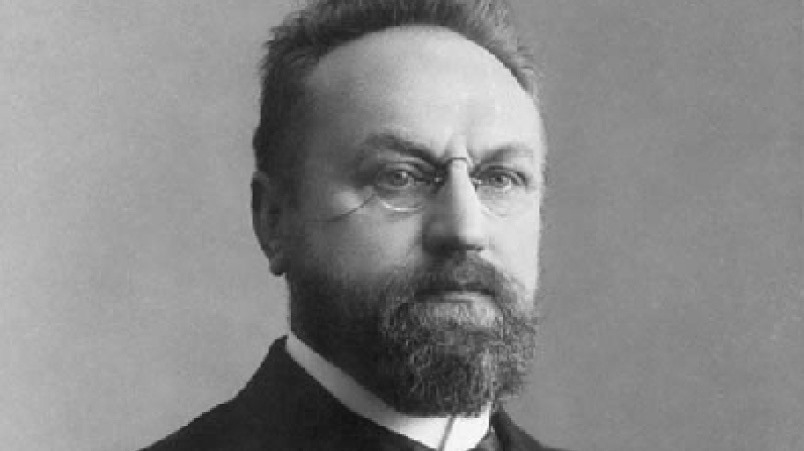Why did Herman Bavinck (1854–1921) as a son of the Secession (“de Afscheiding” [1834]) study theology under modern, liberal theologians in Leiden? David J. Engelsma, “Herman Bavinck: The Man and His Theology,” Protestant Reformed Theological Journal 46 (2012), 12–13, writes about this question:
The explanation of Bavinck’s seeking theological education at Leiden is what the Germans call “Kulturtrieb,” a strong desire for culture. This was a powerful force in Bavinck all his life. “The Kulturtrieb, the urge for further cultural adaptation to his time, permeated him.”
The last sentence is a quotation from Valentijn Hepp, Dr. Herman Bavinck (Amsterdam: Ten Have, 1921), 36.
While Engelsma (page 38) sees that Bavinck struggled with doubt regarding the Bible and nevertheless kept the faith, he blames Bavinck for having caused this doubt himself (among other things) by going to Leiden:
Were it not that . . . Bavinck himself opened himself up to this doubt by his choice of Leiden with its Scripture denying faculty as the school of his seminary training, . . . one would say that there was something heroic about Bavinck’s struggle with doubt.
However, in On the Way to the Living God, 21–22, I have suggested that it was not mere Kulturtrieb that drew Bavinck to Leiden but rather his need to find a way to deal with doubts that he already had:
Given the gap between his Reformed upbringing and the theology at the university, why does Bavinck go to Leiden? Later, he will explain that he wanted “a more academic education than the Theological School [in Kampen] could offer in those days” and that he had “a strong desire to become acquainted with modern theology first hand.”16 It is certainly not his intention to break away from the Reformed faith and to become a modern theologian; the words “Will I remain standing? God give it!” in his diary prove the contrary. But why then does Bavinck feel attracted by modern theology if he already knows that he fundamentally disagrees with it? Why will he later feel so attracted by the theory of evolution that he does not reject it once and for all but comes back to it again and again? Probably he already had doubts—existential-intellectual doubts—before he went to Leiden,17 and maybe he hopes that in Leiden he will find words to make them manageable: unless the power that tries to bring him down gets a face, he will not be able to set his face against it.
Footnotes to this passage: (16) Bavinck, “Ter gedachtenis,” v. See also Hepp, Dr. Herman Bavinck, 29 and Bremmer, Herman Bavinck en zijn tijdgenoten, 20. (17) A letter that A. Brummelkamp wrote to Bavinck on March 2, 1878 makes clear that Bavinck already experienced an inner struggle when he went to Leiden. See Bremmer, Herman Bavinck en zijn tijdgenoten, 21.
Although one may sometimes wish that Bavinck had dealt with his doubts in a different way than that he did and may question his cultural ideal, I think that his choice to go to Leiden should not be reduced to a vain desire for culture for which he carelessly put his faith at risk—rather, his faith was already at risk and in order to face that problem he somehow felt that he needed Leiden, its theology and its culture.
